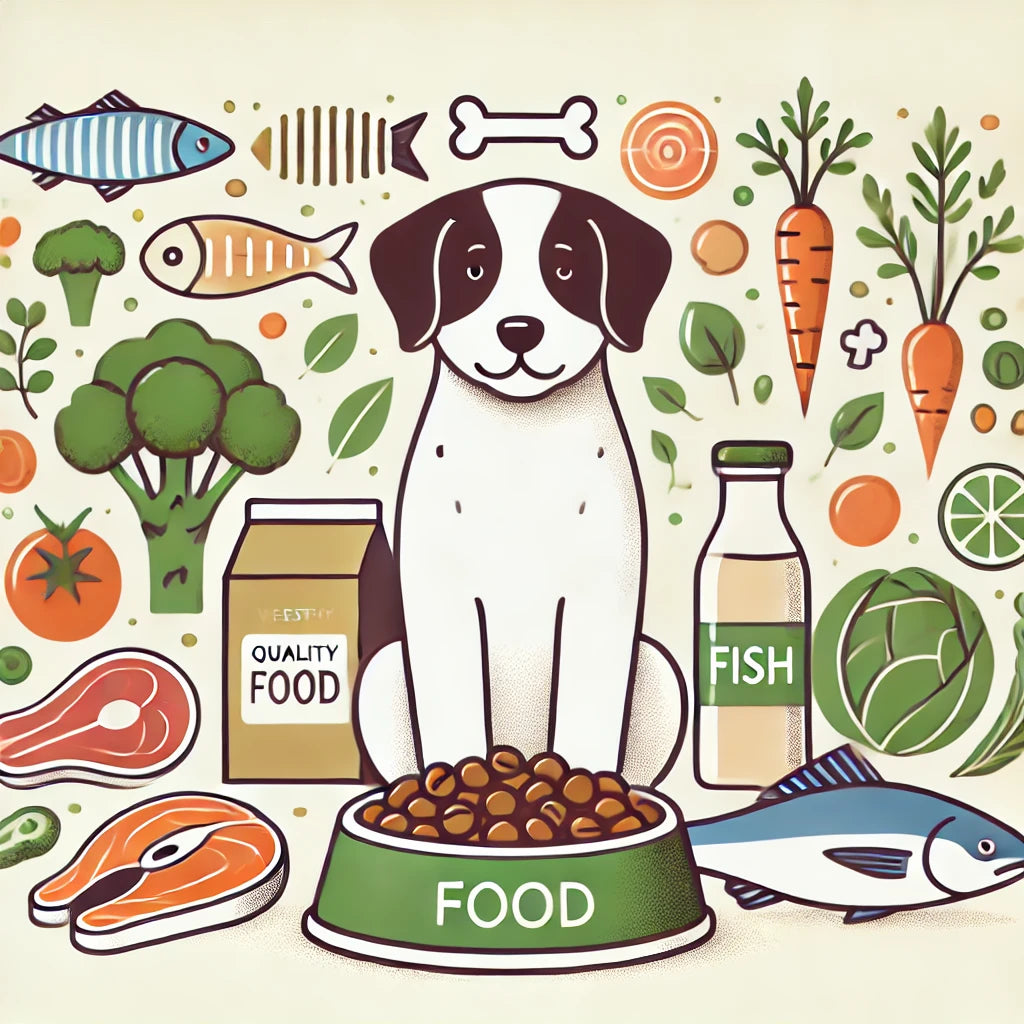Lipomas, or fatty tumors, are a common concern among dog owners. While these growths are generally benign, their appearance often prompts questions about their causes—particularly whether a dog’s diet is to blame. Is there a direct link between certain foods and lipomas? Let’s explore this topic with a fresh perspective, separating myths from facts and uncovering actionable insights for better canine health.
Understanding Lipomas in Dogs
A lipoma is a soft, fatty lump that develops under a dog’s skin. These tumors are most often harmless but can grow large enough to cause discomfort or restrict movement. While the exact cause remains unclear, factors like age, genetics, and weight play significant roles. Diet, while not the sole cause, can influence a dog’s overall health, which in turn impacts the likelihood of developing lipomas.
Foods Commonly Blamed for Lipomas
Some foods have been pointed to as potential contributors to lipomas due to their impact on fat metabolism, inflammation, or toxin accumulation. Here’s a closer look at these suspects:
Processed Foods and Fillers
Low-quality commercial dog foods often contain fillers like corn, wheat, and soy, as well as artificial additives. These ingredients may lead to chronic inflammation and reduced fat metabolism, which some believe could contribute to lipoma development.
High-Fat Diets
A diet high in unhealthy fats, particularly from low-grade animal by-products, may lead to weight gain and fat accumulation, conditions linked to lipomas.
Sugary Treats and Carbohydrate-Heavy Foods
Excessive carbohydrates, especially refined ones, can cause insulin spikes and encourage fat storage, potentially increasing the risk of lipoma formation.
Toxins in Low-Quality Ingredients
Certain low-grade meats and by-products may contain toxins or hormones that accumulate in the body. Some holistic veterinarians theorize that these toxins could be stored in fatty tissues, contributing to lipomas.
The Truth About Diet and Lipomas
While diet can affect overall health, there’s no scientific consensus that specific foods directly cause lipomas. Lipomas are more strongly linked to genetics, aging, and obesity. However, maintaining a healthy diet can reduce a dog’s risk of obesity and inflammation, which may indirectly lower the chances of lipoma development.
Building a Lipoma-Preventive Diet for Your Dog
A balanced, high-quality diet can support your dog’s overall health and may help minimize the risk factors associated with lipomas. Here’s how:
Prioritize Whole Foods
Choose dog foods made from high-quality proteins, whole grains, and fresh vegetables. Avoid products with artificial additives, fillers, or low-grade by-products.
Incorporate Anti-Inflammatory Ingredients
Foods like fish (rich in omega-3 fatty acids), turmeric, and blueberries can help combat inflammation, a potential trigger for fatty tissue growth.
Control Portion Sizes
Overfeeding leads to obesity, a significant risk factor for lipomas. Follow feeding guidelines based on your dog’s weight and activity level.
Opt for Healthy Fats
Not all fats are bad. Include healthy sources like fish oil, flaxseed, and coconut oil, which provide essential fatty acids without promoting weight gain.
Avoid Processed Treats
Replace sugary or carbohydrate-heavy treats with natural options like apple slices, carrots, or plain cooked chicken.
Detox Naturally
Adding foods like parsley, kale, or chlorella can support the liver in processing toxins, potentially reducing their buildup in fatty tissues.
Monitoring and Managing Lipomas
Even with the best diet, lipomas can still occur due to factors beyond dietary control. Regular check-ups with your veterinarian can help monitor any lumps. For existing lipomas, weight management and a nutrient-rich diet can improve your dog’s overall well-being.
The Role of Supplements in Lipoma Prevention
Supplements like omega-3 fatty acids, probiotics, and turmeric may provide additional support by reducing inflammation and supporting immune health. Always consult your vet before introducing supplements to your dog’s diet.
Final Thoughts
While no specific foods directly cause lipomas, diet plays a crucial role in maintaining your dog’s overall health. Feeding high-quality, nutrient-rich food, avoiding harmful ingredients, and managing weight are your best strategies for minimizing risks. Lipomas may not be entirely preventable, but a proactive approach to your dog’s diet and lifestyle can make all the difference.
By focusing on wholesome nutrition and holistic care, you’re not just fighting lipomas—you’re building a foundation for a healthier, happier life for your furry friend.

